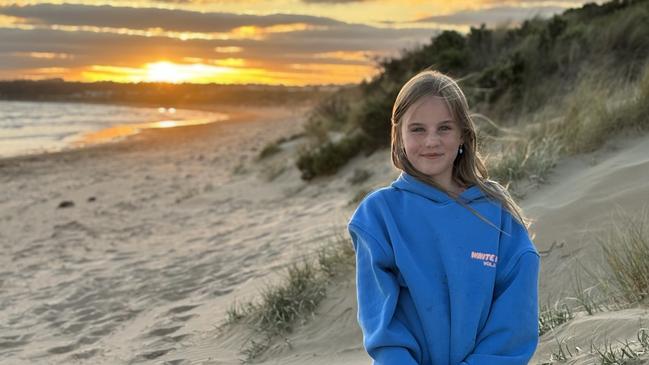Aussie girl who invested in first home aged 6 gets insane windfall
A child who is one of Australia’s youngest investors has got a major real estate score – and she’s still only eight. Here’s how she did it.
Property
Don't miss out on the headlines from Property. Followed categories will be added to My News.
A Melbourne girl who purchased her first investment property aged 6 – making her the country’s youngest landlord – is now on the brink of netting a killer real estate profit.
Ruby McLellan, now 8, made headlines two years ago when it was revealed she, with her three siblings, was the purchaser of a house and land package in Melbourne’s outer suburbs.
And now it’s looking like that property is shaping up to be a prudent investment with a recent valuation showing it had increased in value by nearly $270,000 since the kids bought it.
The children saved up pocket money from their weekly chores to help buy the Clyde property for $671,000 in 2021 and it was recently revalued at $940,000, their dad Cam McLellan claims.

Split four ways, it means that little Ruby, at eight years old, has just shy of $70,000 in equity.
The property rents out for about $700 per week and is positively geared.
Ruby and her siblings Hannah, 17, Gus, 14, Lucy, 13, also own another property in Melbourne’s north that’s worth about $850,000. Ruby’s equity share in the two properties would be about $170,000.
Their dad, an accomplished investor himself, revealed that the properties are held in a trust that he directs and the plan is for the kids to sell them within a decade.
The kids will then have enough money to take their investments further.

“It will be enough to get started. Not enough that everything is done for them and they don’t have to do any of the work, but at least it gets them started,” Mr McLellan said.
The older kids contributed about $2000 each for the house and land package in Clyde, money they earned from doing chores and helping their dad with basic admin tasks in his business.
The rest of the deposit and stamp duty costs were stumped up by Mr McLellan and wife Felicity, who drew equity out of a Croydon investment property to fund the purchase.
That property, a dual occupancy property, was purchased in a trust shortly after their eldest daughter Hannah was born in 2007. It cost about $400,000 and the value has since grown to nearly $850,000.
The younger kids, including Ruby, were later added to the trust.
One of the conditions of the trust is that any profits the kids attain from the properties will have to be directed into a property purchase – whether that’s a residence or another investment.


“The idea is not for me to just buy them something and just throw it into a trust for them,” Mr McLellan said.
“They’ve been involved every step of the way. Making them learn about the process of selecting property was just as important as giving them a bit of a knee up in the market.”
Mr McLellan added that daughter Ruby has learned a lot considering her age.
“She comprehends that someone lives in a house and pays us rent and that makes it possible for us to keep the property. She knows this concept,” he said.
“She’s now beginning to ask about what happens when we sell. It is sinking in. The concept of investing has been planted. Our kids are more exposed to it, and that’s the idea.
“The way we saw it, doing this for our kids was the best way. The way things are with the market, they’d need a $100,000 deposit just to get something when they’re older. That’s a lot of McDonald’s shifts if you wanted to do it early.


“Most people can only buy in their 30s or once they have a partner. At least doing things this way, we know our children can get a better start.”
CAM’S TIPS:
> Consider the affordable end of the market to attract government grants and incentives. This will boost your deposit.
> Stay informed about current market trends to identify investment opportunities and risks.
> Consider leveraging equity from existing properties to finance new investments. Doing this will build your portfolio faster – as long as you understand the risks.
> Always evaluate the tax benefits associated with any type of purchase.
> Casual conversations at barbecues are unlikely to provide the insights you need. Try learning from people who have been successful at property investing.





